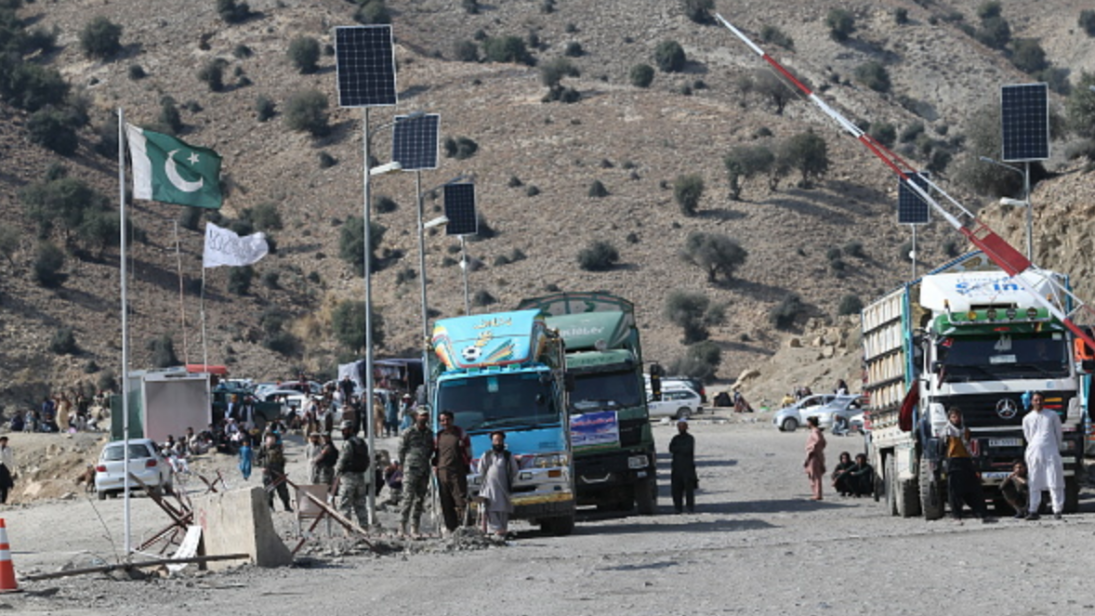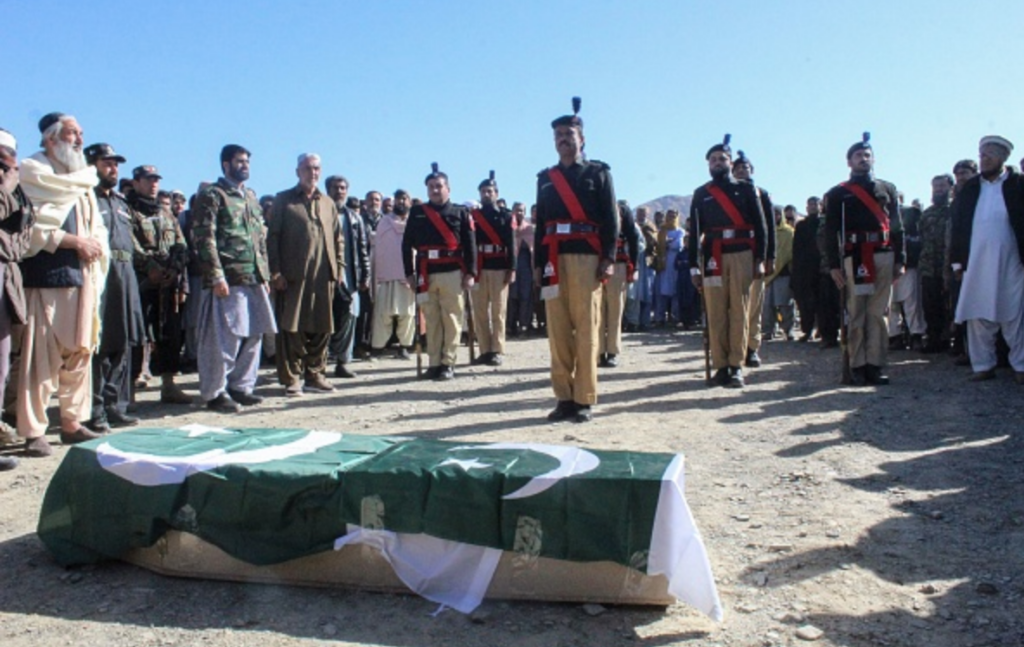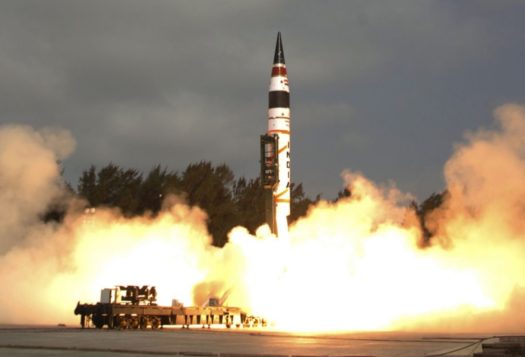
For much of the duration of the Afghan Taliban’s insurgency against U.S.-led forces in Afghanistan, the Tehrik-i-Taliban Pakistan (TTP)–formed officially in 2007 and one of Pakistan’s deadliest terrorist groups–was a force multiplier for the Taliban. While the Taliban and Pakistan have long maintained a close strategic relationship, the TTP, a close ally of the Taliban, remains an adversary of the Pakistani state. The Taliban takeover of Kabul in August 2021 was welcomed by Pakistani politicians and celebrated by the TTP. But Pakistan also seemed to expect that the newly formed Taliban government will pressure the TTP to cease its cross-border attacks on Pakistan. However, it quickly became clear that the Taliban is reluctant to crack down on their former brothers-in-arms at Pakistan’s behest. Although the Taliban government is willing to facilitate talks between Pakistan and the TTP, it expects the two adversaries (TTP and Pakistan) to resolve their own issues. In August 2021, the Taliban spokesman, Zabihullah Mujahid, relayed this clearly by stating, “The issue of the TTP is one that Pakistan will have to deal with, not Afghanistan.”
Although talks between Pakistan and the TTP led to a short-lived ceasefire in November 2021, the TTP continued attacking Pakistani security personnel, eventually catalyzing airstrikes by Pakistan on suspected TTP hideouts in Eastern Afghanistan in April 2022. Weeks later, the two parties reinstated negotiations with another ceasefire declared in early June. This time, Islamabad reportedly sent a negotiating team, including tribal elders, politicians, and parliamentarians to support the talks.
The Pakistani military’s dismal track record negotiating with TTP leaders in the past provides little basis for envisioning an optimistic outcome today. Two additional factors make it even more challenging: the transition of the Afghan Taliban’s interests from insurgency and survival to governance and legitimacy, and the TTP’s newly emboldened status and organizational coherence. Overall, the Taliban’s preference for a limited role in the negotiations, and the TTP’s renewed assertiveness in conjunction with Pakistan’s precarious economic and political situation, severely undermine the chances that the outcome of the current Pakistan-TTP negotiations will deviate from previous debacles. Increasingly, a TTP-Pakistan agreement seems possible only if the Pakistani state concedes to some of the group’s core demands. Accommodating a deadly militant group’s demands without any meaningful consideration of societal preferences or public outreach is likely to be ineffective in reframing the group as a legitimate part of society, and risks reversing Pakistan’s previous gains in its battle against militancy.
Shifting Priorities and Enduring Alliances
In the past, the shared goal of waging jihad against international forces in Afghanistan allowed the Taliban and the TTP to remain closely aligned. Ultimately, the Taliban’s priority of expelling international forces from Afghanistan triumphed the two groups’ conflicting relationships with the Pakistani state. The TTP’s relentless support for waging jihad in Pakistan, despite attempts at dissuasion from the Taliban and Haqqani, were the basis of its separate identity.
Accommodating a deadly militant group’s demands without any meaningful consideration of societal preferences or public outreach is likely to be ineffective…and risks reversing Pakistan’s previous gains in its battle against militancy.
In theory, the U.S withdrawal in 2021 reduced the need for the Taliban and TTP to remain united, as they no longer faced a common state opponent. From Pakistan’s perspective, the Taliban takeover also created room for them to pressure the TTP to halt its attacks on Pakistani security forces—especially given the Taliban’s eagerness to gain international legitimacy and promises to contain terrorist activity.
Yet, the Taliban’s evolving interests suggest that the group is likely to stay on the sidelines when it comes to the Pakistan-TTP problem. First, the Taliban no longer has a need for safe havens across the border, and has been eager to diversify their international partners. This makes it less likely to comply with Pakistan’s demands. Second, the TTP’s long-standing support for the insurgency in Afghanistan won it loyal supporters within the Taliban leadership; any deviation from this loyalty is likely to generate internal strife. Finally, as the Taliban faces a multitude of domestic challenges—including a resurgent Islamic State Khorasan (ISKP) and emerging channels of local resistance –constraining the TTP is likely to be low on the Taliban’s list of priorities.
Though the Afghan Taliban may have fewer reasons to draw on TTP fighters today, they still have incentives to retain their alliance with the group. Setting aside ideological affinities and familial bonds, the Taliban may need the TTP’s support in the future to limit the threat from groups such as ISKP or deter additional TTP defections. Given the intensifying ISKP-Taliban rivalry, it is unsurprising that direct tensions between the TTP and ISKP have also heightened. The TTP condemned suggestions of its links with ISKP in mid-2020, and criticized the group’s sectarian attack on a Shiite mosque in Peshawar in March 2022. In April, ISKP claimed to have killed an “apostate” in Bajaur, Pakistan suspected to be Mufti Bashir Muhammad, a former judge within the TTP.
In addition to rejoicing the Taliban’s takeover, TTP’s recent behavior is indicative of its unyielding commitment to its extremist goals. It has attempted to nurture organizational coherence, improve its tarnished image after years of indiscriminate violence, and sway public opinion through actions such as releasing support statements for the Pashtun Tahafuz Movement and for Tehreek-e-Labbaik Pakistan. Other indicators include the adoption of a new code of conduct in 2018, a string of mergers since mid-2020, and public repudiation of assessments on the group, including UN reports. In parallel, its emboldened mood has resulted in an amplification of attacks within Pakistan. In the ninth issue of their Urdu-language magazine, the TTP claimed to have conducted a total of 104 attacks with 346 casualties in just the first three months of 2022. In April 2022, the TTP announced a spring offensive targeting Pakistani security forces, to include suicide attack missions. Taken together, these developments certainly do not instill confidence in the group’s willingness to compromise.

The Pitfalls of Conceding to the TTP
Given the changed circumstances and priorities of the Taliban and TTP, the Pakistani state must acknowledge its own new realities to understand the limits of peace talks. In the absence of generous flows of military assistance, a shambolic economy, flailing institutions, an enduring Baloch insurgency and a volatile political environment especially after the ouster of Imran Khan, the Pakistani state’s vacillation between airstrikes and negotiations make for poor optics. Pakistani officials can hardly pretend to be negotiating from a position of strength, while the TTP—with Noor Wali Mehsud at its helm—remains emboldened, resolved, and largely unapologetic.
Months after the initial news of talks with the TTP, in mid-June 2022, the Taliban’s spokesperson stated that the latest round of TTP-Pakistan talks in Kabul had concluded, with a declaration of an indefinite ceasefire. Among others demands such as the release of prisoners, the TTP has asked for a full reversal of FATA’s absorption into the Khyber Pukhtunkhwa province along with a withdrawal of Pakistani troops. In other words, the TTP continues to reject the Pakistani constitution. From Pakistan’s side, it seeks the dissolution of TTP, and its transition into a non-violent political party. To renew talks with a proscribed terrorist group, especially when similar attempts in the past have failed, Pakistani officials must be hopeful for a different outcome this time. If this hope is pinned on the Taliban’s ability/willingness to coerce the TTP beyond facilitating talks, it is unlikely to succeed.
Pakistani officials would be prudent to focus on…addressing the underlying causes of extremism, rather than taking two steps backwards to accommodate the demands of militants.
Overall, any agreement with the TTP entails high risks, and one that remains highly improbable without any significant concessions from Pakistan. In general, research suggests that civilian support can play an important role in legitimizing the actions of state actors. Civil society organizations also play a critical role in sustaining peace strategies—neglecting to include them in any meaningful capacity can undermine the sustainability of agreements. In the context of Pakistan, given that civilian populations have borne the brunt of terrorism, public opinion (beyond the formation of a 50+ person jirga) should be factored in before any major points are conceded by Pakistani negotiators. It is certainly not a given that those who suffered from TTP’s violence prefer a negotiated settlement rather than a sustained effort by the state to defeat the aggressor.
Thus far, there is little evidence to show the societal costs and benefits associated with a TTP agreement have been carefully considered by Pakistani negotiators, as there is minimal public outreach about the logic of the ongoing talks. Ultimately, any agreement reached with the TTP necessitates a public discourse about whether the TTP can be reframed from a terrorist opponent to a legitimate actor of society. Until then, Pakistani officials would be prudent to focus on leveraging lessons learned from its decade and a half of combating terrorism and insurgency, and addressing the underlying causes of extremism, rather than taking two steps backwards to accommodate the demands of militants.
***
Image 1: Anadolu Agency via Getty Images
Image 2: Abdul Basit/AFP via Getty Images


